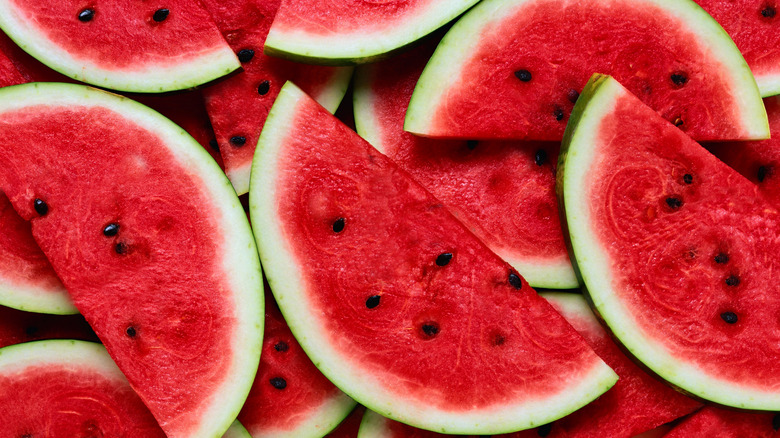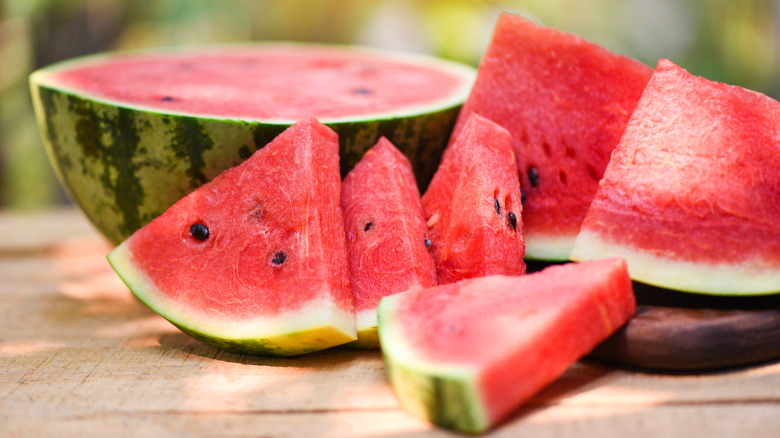If You Eat Watermelon Seeds, This Is What Happens
Despite what we were told as children, swallowing watermelon seeds will not cause a watermelon to grow in your stomach. In fact, watermelon seeds are perfectly safe to eat and have even been linked to a range of health benefits (via Woman's Day). Packed full of antioxidants and protein, watermelon seeds are nutritious and can be eaten as a healthy snack. A 1 ounce serving of watermelon seeds contains at least 10 grams of protein, which is 3 to 4 grams more than the amount of protein in a single egg.
Watermelon seeds are also a great source of vitamins and minerals (via Best Life). Just 1 ounce of watermelon seeds contains 146 milligrams of magnesium, 214 milligrams of phosphorus, and 184 milligrams of potassium. Watermelon seeds contain variety of other vitamins and minerals, as well, including zinc, iron, calcium, folate, and vitamin B. That's why it's important to eat them with the fruit and not spit them out.
Health benefits of watermelon seeds
Just like the fruit itself, watermelon seeds contain a number of potential health benefits. For instance, watermelon seeds are heart-healthy and can promote cardiovascular health (via Livestrong). That's because they're a good source of magnesium, which can help support heart function and prevent potassium loss. Potassium helps regulate blood pressure and can protect your heart from disease. If your potassium levels get too low, however, you could have a heart attack or go into cardiac arrest.
Watermelon seeds can also improve the quality of your skin. Watermelon seeds are full of zinc and magnesium, two minerals that can help keep your skin looking young and clear. Consuming zinc can help prevent acne breakouts, while magnesium can slow aging and prevent the onset of age-related skin disorders. Furthermore, eating watermelon seeds may promote weight loss. Watermelon seeds are high in protein and low in calories, making it a healthy snack that can help keep you feeling full longer.


